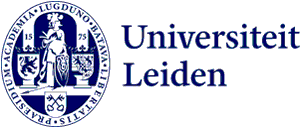
From dialogue to decisive action: how we at FGGA are working towards social safety and collaboration
The recent work experience survey offered valuable insights into how how staff at FGGA view their work and working environment. Managers discussed this with their teams. What did these conversations yield?
'Ask yourself: what sort of team do we want to be, what do we want to achieve, and what do we need from each other?'
We spoke with Niels Laurens (Director of Operations), Emmely Benschop (Director of the Centre for Professional Learning), and Sanneke Kuipers and Marc Bosma (Research Director and Institute Manager of the Institute of Security and Global Affairs).
‘Change starts with yourself’
For Niels Laurens, Director of Operations, the most important insight was that ownership doesn't solely sit with managers. 'What I have particularly learnt is that everyone, from staff member to board member, plays a role in strengthening ‘what goes well and what could be improved.' Often these are small, everyday things.' For example, 'I need to pick up the phone more often to call someone instead of sending an email,' is one lesson I'll take with me. An active kickoff was organized within the faculty office, encouraging heads to hold sessions with their teams and mobilizing employees. 'Discussing the outcomes not only generates ideas for improvements but also fosters a stronger sense of team spirit. If one person experiences a problem, at its core, it’s a problem for all of us.'
'A safe working environment does not come about by itself'
Emmely Benschop, director of the Centre for Professional Learning (CPL), saw from the results that teamwork and flexibility are highly valued. 'Collaboration within the team and the space for personal commitments form a strong foundation,' she says. At the same time, it became clear that colleagues need more clarity about development opportunities and policies concerning inappropriate behavior. 'It would be ideal if we never needed to use those policies, but it is essential to know who you can turn to.'
CPL has therefore integrated a presentation on social safety and integrity into its induction programme and organises an annual team meeting on this topic. 'We want to actively create space for discussions about dilemmas and case studies,' says Emmely. 'In addition, we've agreed to dedicate at least one half-day a year to team collaboration. That helps us understand each other better and grow together.'
She also emphasises the importance of balance: 'We have a committed team willing to go the extra mile. The challenge is to safeguard your own boundaries and communicate them constructively. Only then can you sustain your energy in the long term.'
‘Our growth is a positive challenge’
At the Institute of Security and Global Affairs (ISGA), the work experience survey helped sharpen their approach. 'We could clearly distinguish between structural priorities and incidental issues," said Sanneke Kuipers (Scientific Director) and Marc Bosma (Institute Manager). 'This provided direction: we are now focusing on themes such as promotion policy, administrative communication, and workload.'
The insights were widely shared: in the Institute Council, within teams, and during a strategy session with the Faculty Board. Simultaneously, efforts were made to improve information provision on social safety. 'We noticed that many protocols do exist, but are not sufficiently known. That's why our HR advisor is now more visible in the workplace, and we've appointed a vice-chair of the Institute Council who focuses on well-being, diversity, and inclusion.'
ISGA's international composition presents both unique opportunities and challenges. 'We are proud of the diversity within our institute, but cultural differences also require ongoing dialogue. Only then can we forge a close-knit community.'
Moving forward together
All three emphasise that social safety and cooperation are not one-off topics, but part of an ongoing process, which is reflected in the Together @ FGGA policy. Looking towards 2026, they want to keep investing in dialogue, ownership, and concrete action. Or as Niels puts it: 'Ask yourself: what sort of team do we want to be, what do we want to achieve, and what do we need from each other?'
These stories show that social and psychological safety are not abstract concepts, but a daily practice that grows through dialogue, attention, and concrete action.
Do you need support or practical tools to address up undesirable behaviour and actively work on social safety?
Then sign up for 'The Active Bystander'